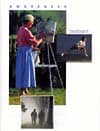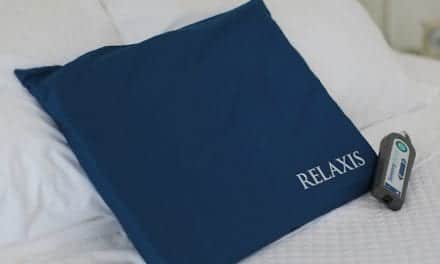| Soft Drinks, Sleeping Pills Cause Heartburn During Sleep Carbonated soft drinks and one of the most commonly prescribed types of sleeping pills, benzodiazepines, can cause nighttime heartburn, according to new research. A study published in the May issue of Chest, the peer-reviewed journal of  the American College of Chest Physicians, identifies these and other factors as causing reflux into the esophagus so severe that it disrupts people’s sleep on a regular basis. The results of the study identify a link between carbonated soft drink consumption and nighttime heartburn, a result of the soft drinks’ high acidity level. The study also showed that benzodiazepines were significantly associated with heartburn during sleep but did not find a similar connection for antidepressants or calcium channel blockers, two other types of medications known to precipitate gastroesophageal reflux. “They [sleep clinicians] should be aware of the phenomenon of heartburn that awakens patients during sleep,” says the study’s author, Ronnie Fass, MD, Southern Arizona VA Health Care System and University of Arizona College of Medicine, Tucson. “Sometimes reflux may cause short arousals that are amnestic—patients don’t remember them—so they don’t report it, but it causes short arousals that cause fragmentation of sleep, leading to poor quality of sleep. So [sleep clinicians] need to consider reflux as a possible cause of poor quality of sleep.” the American College of Chest Physicians, identifies these and other factors as causing reflux into the esophagus so severe that it disrupts people’s sleep on a regular basis. The results of the study identify a link between carbonated soft drink consumption and nighttime heartburn, a result of the soft drinks’ high acidity level. The study also showed that benzodiazepines were significantly associated with heartburn during sleep but did not find a similar connection for antidepressants or calcium channel blockers, two other types of medications known to precipitate gastroesophageal reflux. “They [sleep clinicians] should be aware of the phenomenon of heartburn that awakens patients during sleep,” says the study’s author, Ronnie Fass, MD, Southern Arizona VA Health Care System and University of Arizona College of Medicine, Tucson. “Sometimes reflux may cause short arousals that are amnestic—patients don’t remember them—so they don’t report it, but it causes short arousals that cause fragmentation of sleep, leading to poor quality of sleep. So [sleep clinicians] need to consider reflux as a possible cause of poor quality of sleep.”
“There are simple lifestyle changes people can make to help reduce their frequency of heartburn during sleep,” said Paul A. Kvale, MD, FCCP, president of the American College of Chest Physicians. “Reducing consumption of carbonated soft drinks, replacing benzodiazepines with other types of sleeping pills, and losing weight can all help reduce nighttime heartburn.” |
Clinical Results Announced for Gaboxadol
Merck & Co Inc, Whitehouse Station, NJ, and H. Lundbeck A/S, Valby, Denmark, announced at the 19th Annual Meeting of the Associated Professional Sleep Societies the results of a Phase II clinical trial with gaboxadol, an investigational agent in Phase III for the treatment of insomnia and the first selective extrasynaptic GABAA agonist (SEGA), a new class of sleep agents. Gaboxadol demonstrated significant improvement over placebo in several study endpoints for both sleep initiation and sleep maintenance in patients with primary insomnia. Fifteen milligrams of gaboxadol also significantly increased the amount of slow wave sleep patients experienced. “The findings of this early stage trial show that gaboxadol significantly improved several measures of sleep initiation and sleep maintenance in patients with primary insomnia,” said Stephen Deacon, PhD, lead investigator of the study and head of Clinical Development, Sleep Disorders, Lundbeck, UK.
Ramelteon Demonstrates No Abuse Potential
Results of a clinical study indicated that ramelteon, an investigational compound currently under review by the FDA for insomnia treatment, had no more potential for abuse than placebo in individuals with a history of polydrug abuse. These results, presented at the 2005 American Psychiatric Association Annual Meeting, showed that patients exhibited no abuse potential or behavioral impairment at up to 20 times the proposed therapeutic dose of ramelteon compared to placebo. “In the treatment of insomnia, drug abuse potential is a significant concern to patients as well as to prescribing physicians,” said Roland Griffiths, PhD, professor in the Departments of Psychiatry and Neuroscience, Johns Hopkins Bayview Medical Center, Baltimore. “The chronic nature of some types of insomnia may necessitate treatment for an extended period, underscoring the need for sleep medications with little or no abuse potential.”
Requip Approved for RLS Treatment
GlaxoSmithKline, Research Triangle Park, NC, recently announced that the US Food and Drug Administration has approved Requip® (ropinirole HCl) tablets for the treatment of moderate-to-severe primary restless legs syndrome (RLS) in adults. “Throughout our clinical research program for RLS, we’ve had the opportunity to speak with many people who suffer from this condition, and we’ve heard first-hand about how difficult life can be for them,” said Chris Viehbacher, president, US Pharmaceuticals, GlaxoSmithKline. “With the approval of Requip for moderate-to-severe primary RLS, we’re proud to be able to offer effective relief to millions of people who live with this condition, many of whom have suffered for years without treatment.”
 Conference Addresses Childhood Sleep Conference Addresses Childhood Sleep The Annenberg Center for Health Sciences at Eisenhower, Rancho Mirage, Calif, will be holding its 24th Annual Conference on Sleep Disorders in Infancy and Childhood on January 26 to 28, 2006. “Attendees will receive the latest information on behavioral treatment for childhood sleep disturbance and pharmacotherapeutic treatment for pediatric insomnia, as well as sleeplessness in special needs children,” says Marg Hagerty, project manager, Annenberg Center for Health Sciences at Eisenhower. “They will hear about sleep-related movement disorders, and be better able to identify and evaluate issues in polysomnographic monitoring in children, translate current research on SIDS, and discuss sleep disorder issues particular to neonates.” Major topics included in the conference include the sleepless child, sleep-related movement disorders, polysomnographic monitoring in children, and neonatology and SIDS. “For 23 years, some of the leading authorities on sleep disorders in infants and children have been meeting at the Annenberg Center to share theories, information, and knowledge,” Hagerty says. “We look forward to continuing this groundbreaking approach to the understanding of sleep disorders in infants and children.” |


